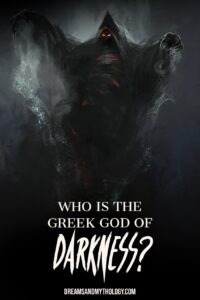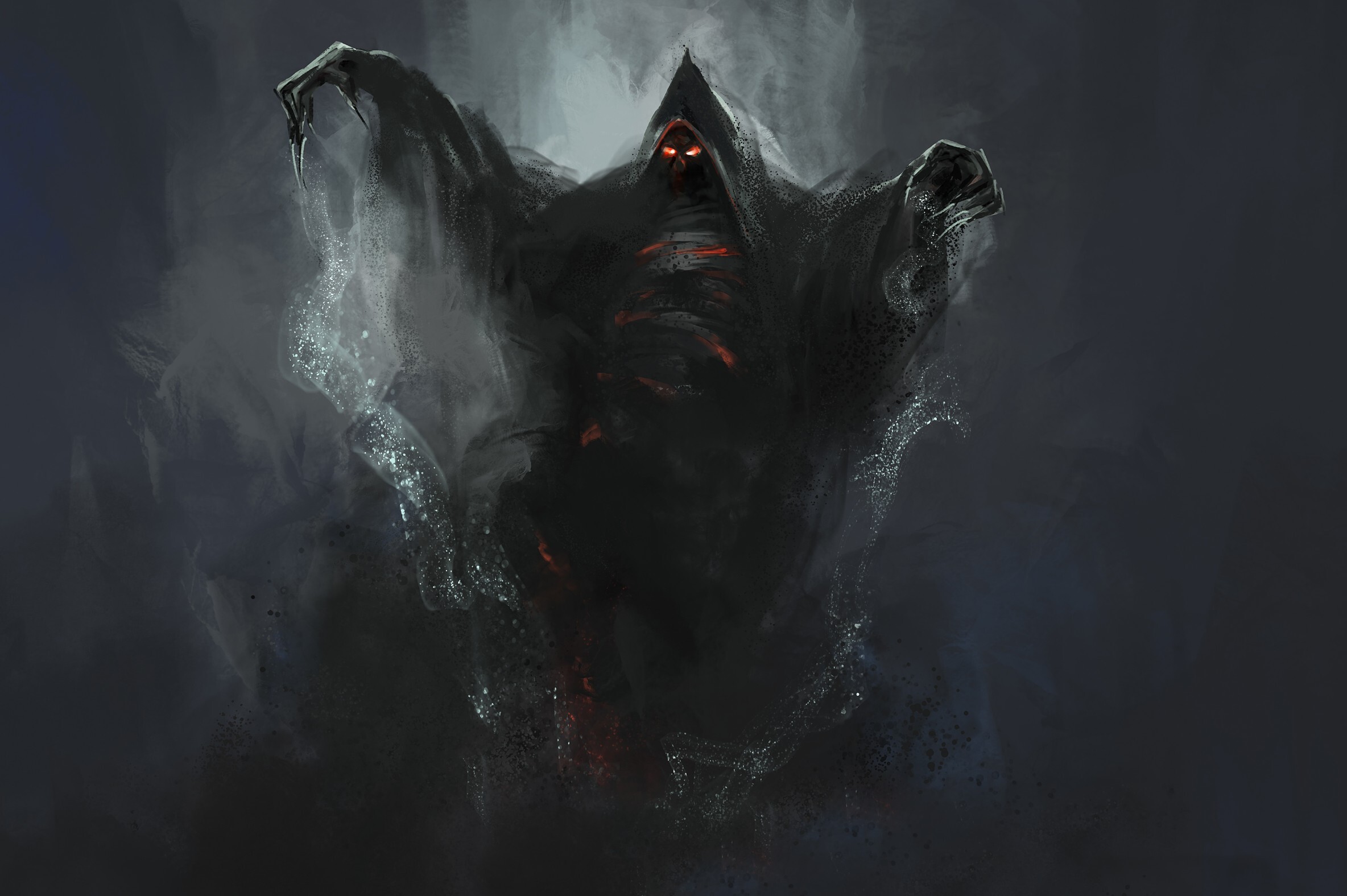As the darkness of the night, things we take for granted were something the Greeks took seriously.
The Greeks took it so seriously that they created a deity—the Greek God of Darkness, one of the oldest deities.
When the night came, it was the God of Darkness who brought the night.
Look at it this way: we think of darkness as a lack of light. The sun, sets and its brightness goes away. We’re left with the absence of light particles, what we call darkness.
Greek stories defined it differently. It wasn’t the sun setting away but the God of Darkness who arrived. It was the mists of darkness that covered the earth.
This god reigned in darkness, was lord of the Underworld, and had a primordial purpose in the world. Check below to learn more about him!
Who Is the Greek God of Darkness?

His name was Erebus. It comes from the ancient Greek Ἔρεβος”.
This name signified negativity and mystery. A literal translation would be darkness. But it was used as “the place between the earth and Hades’ real (the Underworld).”
In short, Erebus was the creator of the Underworld and bringer of darkness, ruler of the darkest places on earth.
He was also known as a primordial deity, darkness personified, one of the world’s creators.
Where Does Erebus Come From?
Some gods preceded the universe. They were called primordial deities.
Unlike Greek myths and Olympians, these deities were part of the world, and Erebus was darkness.
His mother was Chaos, another primordial deity. She separated the earth from the heavens.
His sister (and wife) was Nyx, who personified the night. She brought the mist of darkness with Erebus every day.
But Erebus wasn’t the most popular of all deities. He was often forgotten from tales and stories. But some of his descendants weren’t…
Erebus Offspring (The Daimons)
Erebus was married to his sister, Nyx. Together, they had many progenies.
This offspring became daimons (demons in contemporary language). Some eventually became gods themselves, deities with essential purposes in the world.
- Aether
The ether, that blue hue in the sky. The Greeks made it the god of light. Aether was his name.
He enveloped the mountains, appeared in the sky alongside the stars, and was a sun and moon friend.
- Eris
The goddess of discord. Tales mention Eris as the most disagreeable goddess, a spirit that rejoiced human bloodshed and the rivalry of wars.
- Eros
The god of procreation. He was armed with a bow and arrow, used as a tool for light. Whenever he shot, new life bloomed.
- Hemera
While Erebus personified darkness, Hemera, one of his offspring, personified daytime. She was a goddess, bringing daylight every morning.
Her mother Nyx brought the night. Hemera brought the morning.
- Hypnos
The god of sleep. He was the personification of this everyday occurrence.
- Geras
Oldness personified, Geras had the image of an old man, shriveled and malevolent.
He had the purpose of bringing old age to men with one touch.
- Charon
A spirit that carried the souls of dead bodies in a boat. Also known as the ferryman, he brought souls to the Underworld.
- Thanatos
The main character of many myths, Thanatos, was the spirit of death. But not any death, but the non-violent end of life. Thus, he was the personification, winged and bearded – a gentle god.
- Styx
The River Styx from the Underworld had its own goddess, Styx. She was also the personification of hatred.
- Nemesis
A bad deed was met with the nemesis, the goddess of divine retribution, revenge, and resentment.
She had the power to maintain equilibrium within humans, making sure every man could avenge his dues.
- The Moirai
These were three goddesses: Lachesis, Atropos, and Clotho. They were the personification of destiny. Without the Moirai, men had no future.
Every step men made was part of the Moirai, who controlled fate. Because every men’s ultimate fate was death, they were eventually known as the “Goddesses of Death.”
- The Oneiroi
These were winged creatures, personifications of dreams. They appeared at night, in the dreams of people. Among the Oneiroi, you could find Morpheus – a deity that appeared in men’s dreams to deliver important messages.
The Oneiroi gave birth to Oneirology, the study and interpretation of dreams.
- The Hesperides
Also called the Daughters of the Evening or the Golden Nymphs. They were goddesses-nymphs who brought the sunset.
The Hesperides also held many of men’s treasures.
What was Erebus’ Role?
Erebus’ offspring controlled the world in many ways. Now, what was the God of Darkness’s purpose?
Bring the Darkness
Taken from many different tales, Erebus was the god who brought darkness to the world. Alongside Nyx, they help the night envelop the world every day.
His son, Aether, brought the light in the morning by pushing the darkness out, enveloping the world with brightness.
Rule the Underworld
Many tales mention Erebus as a region of the Underworld, an important place in the world.
Erebus was the deepest part, the darkest one. Thus, Erebus was considered the ruler of the Underworld.
This was until Hades took his place.
Create the Underworld
Other tales mention Erebus as the creator of hell. He created this place before the other primordial gods created the earth, making Erebus one of the most important deities.
Bring Souls to Hades
Hades was part of the Underworld. Erebus, as darkness, made it possible for unfortunate souls to travel to that place.
Rule the Darkness
Every inch of darkness in the world was Erebus’ territory. Thus, he controlled it all. He ruled in the night, in caves, in deep places, and crevices. Everywhere there wasn’t a light; Erebus was ruling.
What Can We Learn from Erebus, ‘The God of Darkness’?
When darkness took over the world at night, Erebus was there.
This includes the long winters and the eclipses. When those happened, it was Erebus behind it all.
The Greeks gave Erebus one of the most important roles, making him a god who controlled the world in many ways. As they couldn’t explain natural phenomena and many of the world’s mysteries, they gave Erebus the role of darkness.
While we can explain many of the world’s mysteries nowadays, thousands of years ago, we couldn’t. Thus, gods were our best explanation for those things that would otherwise blow our minds.
The Greek God of Darkness, Erebus, was one of them.
